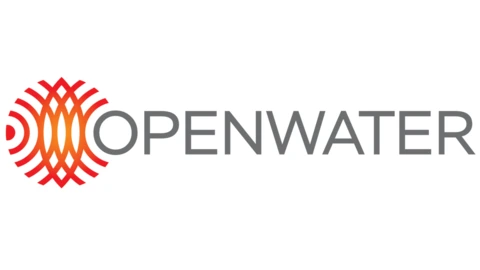
U of A Study: Openwater’s Open-LIFU 2.0 Reduces Depression Symptoms in Under 2 Hours
Openwater, a leader in open-source medical technology, has announced breakthrough results from a study conducted by the University of Arizona, published in Frontiers in Psychiatry. The study, titled “Transcranial Focused Ultrasound Targeting the Default Mode Network for the Treatment of Depression,” demonstrated significant efficacy of Openwater’s Open-LIFU 2.0 device in treating depression. The device uses targeted, low-intensity transcranial focused ultrasound pulses to the brain’s anterior medial prefrontal cortex—a key area within the default mode network associated with negative thought patterns common in depression.
Over 11 brief, ten-minute sessions administered across three weeks (totaling less than two hours of treatment), the study showed that 45-60% of the 20 participants experienced significant reductions in depression severity, as measured by two widely used clinical depression assessments. Remarkably, 35% of participants achieved clinical remission. These promising results reflect the device’s potential in delivering quick, effective relief for those struggling with depression.
Openwater’s Open-LIFU 2.0 stands out from other ultrasound systems by using an advanced ultrasound array to steer the focused ultrasound precisely to the targeted brain area. Its wearable and compact design allows for focused treatment through the forehead, even while the participant is moving. This portability and flexibility mark a significant leap forward in treatment delivery compared to traditional systems that require patients to remain stationary.

The study comes at a time when traditional treatments for depression, such as medications and psychotherapy, fail to provide meaningful relief for up to 50% of patients. Additionally, a significant portion of patients abandon these treatments due to their length or lack of efficacy. In contrast, participants in the Openwater study reported substantial improvements, including a reduction in repetitive negative thoughts, better psychological and physical well-being, and greater satisfaction with their environment. Moreover, the study observed a remarkably low dropout rate of just 10%, further emphasizing the therapy’s appeal and accessibility.
Importantly, the study highlighted that these improvements occurred without significant adverse effects, suggesting that Open-LIFU 2.0 offers a safe, well-tolerated alternative to current depression treatments. Dr. John J.B. Allen, a Professor of Psychology, Cognitive Science, and Neuroscience at the University of Arizona, expressed his optimism about these results, stating, “These results provide a meaningful step forward in neuromodulation techniques for treating depression. We saw substantial improvements in depressive symptoms and quality of life with a shorter treatment protocol than standard treatments, which suggests transcranial ultrasound technology could provide rapid, lasting relief for individuals with treatment-resistant depression.”
Openwater’s CEO, Aaron Timm, underscored the global impact of these findings. “With over 280 million people affected by depression worldwide, there is an urgent need for treatments that are effective, portable, and affordable,” he said. “Openwater’s technology offers the potential for precise, targeted ultrasound treatment designed specifically for accessibility. We are encouraged by the results of the University of Arizona study using our technology.”
The promising outcomes of the study suggest that Openwater’s Open-LIFU 2.0 device could revolutionize depression treatment by providing a non-invasive, rapid, and targeted approach. The technology could potentially serve as a game-changer for patients whose depression has proven resistant to traditional therapies, offering them a new, effective treatment option in a fraction of the time.
Looking ahead, Openwater plans to continue its research with larger, randomized controlled studies to further validate the efficacy of transcranial focused ultrasound in treating depression. This next phase of research aims to refine treatment protocols and better understand the long-term benefits of this innovative approach.
Openwater was founded by Dr. Mary Lou Jepsen with the goal of making hospital-grade care universally accessible. The company combines open-source development and consumer electronics manufacturing to lower costs and accelerate the delivery of non-invasive medical devices. Backed by significant investors, including Khosla Ventures, Plum Alley, BOLD Capital Partners, and notable figures like Vitalik Buterin and Peter Gabriel, Openwater collaborates with leading institutions worldwide to research and distribute its technologies, ensuring they reach patients across different borders and income levels.
Openwater’s Open-LIFU 2.0 device represents a major advancement in the treatment of depression, offering hope for those who have struggled with conventional therapies. As the company continues to push the boundaries of medical technology, its portable, efficient, and non-invasive solutions hold the promise of transforming mental health care globally.




